3.11: Surviving Japan est un film de genre Documentaire réalisé par Simon Hilton
3.11: Surviving Japan (2013)
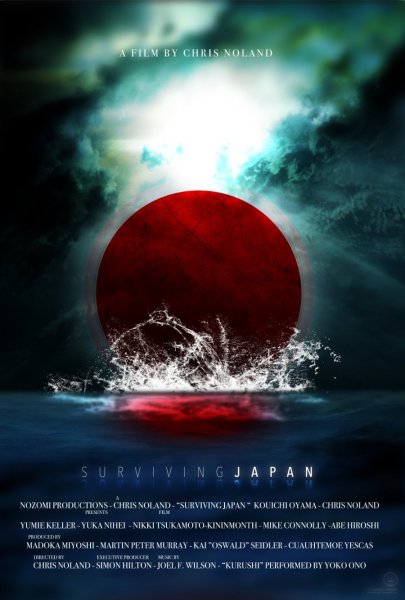
Si vous aimez ce film, faites-le savoir !
Durée 1h30
Réalisé par Simon Hilton
Genres Documentaire
Themes L'environnement, La mer, Transport, Documentaire sur l'environnement, Documentaire historique, Documentaire sur le nucléaire, Documentaire sur les technologies, Film catastrophe, Catastrophe sismologique
Note81%










Surviving Japan is a 2012 documentary film about the 2011 Tōhoku earthquake and tsunami and the Fukushima Daiichi nuclear disaster in Japan written and directed by volunteer and resident Chris Noland.
Synopsis
The film spans from March 11, 2001 to September 19, 2011, starting with Noland's own experience in the Tōhoku Earthquake and tsunami, Fukushima Daiichi nuclear disaster followed by volunteer activities in OfunatoCommentaires
Postez un commentaire :
Suggestions de films similaires à 3.11: Surviving Japan
Il y a 1 films avec le même réalisateur, 8966 ayant les mêmes genres cinématographiques, 10149 films qui ont les mêmes thèmes (dont 1 films qui ont les mêmes 9 thèmes que 3.11: Surviving Japan), pour avoir au final 70 suggestions de films similaires.Si vous avez aimé 3.11: Surviving Japan, vous aimerez sûrement les films similaires suivants :
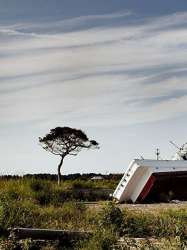
My Atomic Aunt (2013)
Genres Documentaire
Thèmes L'environnement, La mer, Transport, Documentaire sur l'environnement, Documentaire historique, Documentaire sur le nucléaire, Documentaire sur les technologies, Film catastrophe, Catastrophe sismologique
Note67%





Surviving the Tsunami brings together social, environmental, and personal perspectives of the national catastrophe of the Fukushima nuclear meltdown. In the documentary, Kyoko Miyake travels back to her hometown in Namie, Fukushima, to revisit her old life and assess the trauma still lingering from the disaster. She revisits Namie, her mother's hometown and meets the people who depended on the success of the nuclear plant for their livelihood. The film also follows Bunsei Watanabe and Kyoko Miyake's Aunt Kuniko, two people who hope for the rejuvenation of Namie, despite the disaster that has occurred. Despite having lost family, friends, and jobs due to the meltdown and subsequent fear of the contamination zone, these two individuals are determined to rebuild their towns and neighborhoods and bring back the sense of community they once had. The film follows the residents of Namie, with emphasis on the experiences of Aunt Kuniko, as they come to terms with the reality of living in or near the "radiation zone" left in the wake the plant's nuclear meltdown. Surviving the Tsunami offers a different perspective on Japanese culture, national identity, human adaption, and global nuclear energy and proliferation.
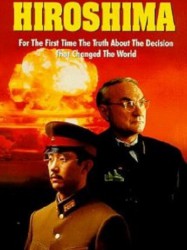
Hiroshima (1995)
, 3h10Réalisé par Roger Spottiswoode, Koreyoshi Kurahara, Hideo Sekigawa
Origine Canada
Genres Drame, Documentaire
Thèmes L'environnement, La mer, Transport, Aviation, Documentaire sur l'environnement, Documentaire sur la guerre, Documentaire historique, Documentaire sur le nucléaire, Documentaire sur les technologies, Politique, Documentaire sur la Seconde Guerre mondiale
Acteurs Eiji Okada, Kenneth Welsh, Ken Jenkins, Yumeji Tsukioka, Tatsuo Matsumura, Wesley Addy
Note77%





The film opens in April 1945 with the death of Franklin Roosevelt and the succession of Harry Truman to the presidency. In Europe, the Germans are close to surrender, but in the Pacific the bloody battle for Okinawa is still underway and an invasion of the Japanese home islands is not foreseen until the autumn. American battle casualties have almost reached 900,000, with Japanese casualties at 1.1 million, and some 8 million Asian civilians have died in the war that began with Japan's invasion of Manchuria in 1931.
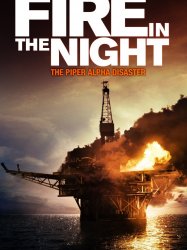
Fire in the Night (2013)
, 1h34Origine Royaume-uni
Genres Documentaire
Thèmes L'environnement, La mer, Transport, Documentaire sur l'environnement, Documentaire historique, Documentaire sur les technologies, Film catastrophe, Catastrophe navale
Note75%





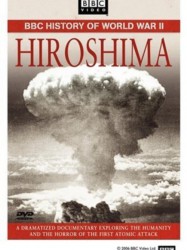
Hiroshima (2005)
, 1h29Origine Royaume-uni
Genres Drame, Documentaire
Thèmes L'environnement, La mer, Transport, Aviation, Documentaire sur l'environnement, Documentaire sur la guerre, Documentaire historique, Documentaire sur le nucléaire, Documentaire sur les technologies, Politique, Documentaire sur la Seconde Guerre mondiale
Acteurs John Hurt, Ed Bishop, Katsumi Chō, Naoko Mori, Ian Shaw, Shane Rimmer
Note76%





À 8h15 précises ce 6 août 1945, le monde a changé. 40.000 personnes trouvent instantanément la mort, mais ce sont bien 200.000 décès qui seront provoqués par l´explosion de la première bombe nucléaire sur Hiroshima, au Japon. Ce documentaire exceptionnel de 90 minutes n´est pas « Un énième film anti-guerre » déclare son réalisateur Paul Wilmshurst, « mais bien l´analyse neutre et objective d´une décision cruciale. Il ne s´agit pas d´être pro-américain ou pro-japonais, j´ai simplement voulu raconter la vérité. » Une vérité technologique, scientifique, militaire et politique qui se dessine dans les trois semaines précédant l´attaque, alors que le premier essai nucléaire vient de se dérouler dans le désert du Nouveau-Mexique, aux États-Unis. Le spectateur se retrouve alors dans la pièce où est prise la décision ultime, à bord de l´Enola Gay pendant son trajet fatidique, à l´intérieur de la bombe au moment de l´explosion, puis dans les rues dévastées d´Hiroshima.

No More Hiroshima (1984)
Genres Documentaire
Thèmes L'environnement, La mer, Transport, Aviation, Documentaire sur l'environnement, Documentaire sur la guerre, Documentaire historique, Documentaire sur le nucléaire, Documentaire sur les technologies, Politique, Documentaire sur la Seconde Guerre mondiale

The Atom Strikes! (1945)
, 31minutesOrigine Etats-Unis
Genres Guerre, Documentaire
Thèmes L'environnement, La mer, Transport, Aviation, Documentaire sur l'environnement, Documentaire sur la guerre, Documentaire historique, Documentaire sur le nucléaire, Documentaire sur les technologies, Politique, Documentaire sur la Seconde Guerre mondiale
Note58%





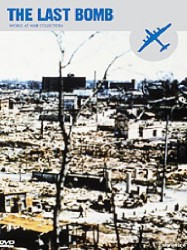
The Last Bomb (1945)
, 35minutesRéalisé par Frank Lloyd
Origine Etats-Unis
Genres Documentaire
Thèmes L'environnement, La mer, Transport, Aviation, Documentaire sur l'environnement, Documentaire sur la guerre, Documentaire historique, Documentaire sur le nucléaire, Documentaire sur les technologies, Politique, Documentaire sur la Seconde Guerre mondiale, Forces armées des États-Unis
Acteurs Reed Hadley, John Arthur Kennedy, James Seay, Don Taylor
Note63%





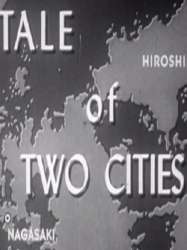
Tale of Two Cities (1946)
, 12minutesOrigine Etats-Unis
Genres Documentaire
Thèmes L'environnement, La mer, Transport, Aviation, Documentaire sur l'environnement, Documentaire sur la guerre, Documentaire historique, Documentaire sur le nucléaire, Documentaire sur les technologies, Politique, Documentaire sur la Seconde Guerre mondiale

The Mushroom Club (2005)
Origine Etats-Unis
Genres Documentaire
Thèmes L'environnement, La mer, Transport, Aviation, Documentaire sur l'environnement, Documentaire sur la guerre, Documentaire historique, Documentaire sur le nucléaire, Documentaire sur les technologies, Politique, Documentaire sur la Seconde Guerre mondiale
Note66%






Original Child Bomb (2004)
, 57minutesGenres Documentaire
Thèmes L'environnement, La mer, Transport, Aviation, Documentaire sur l'environnement, Documentaire sur la guerre, Documentaire historique, Documentaire sur le nucléaire, Documentaire sur les technologies, Politique, Documentaire sur la Seconde Guerre mondiale
Note68%





Original Child Bomb begins with a recreation of the dropping of Little Boy from the perspective of Hiroshima's residents. It is joined with both historical and contemporary footage and overlaid with various voice-overs. The documentary moves on to offer the accounts of several Japanese witnesses of the atomic bombing destruction.
 Connexion
Connexion